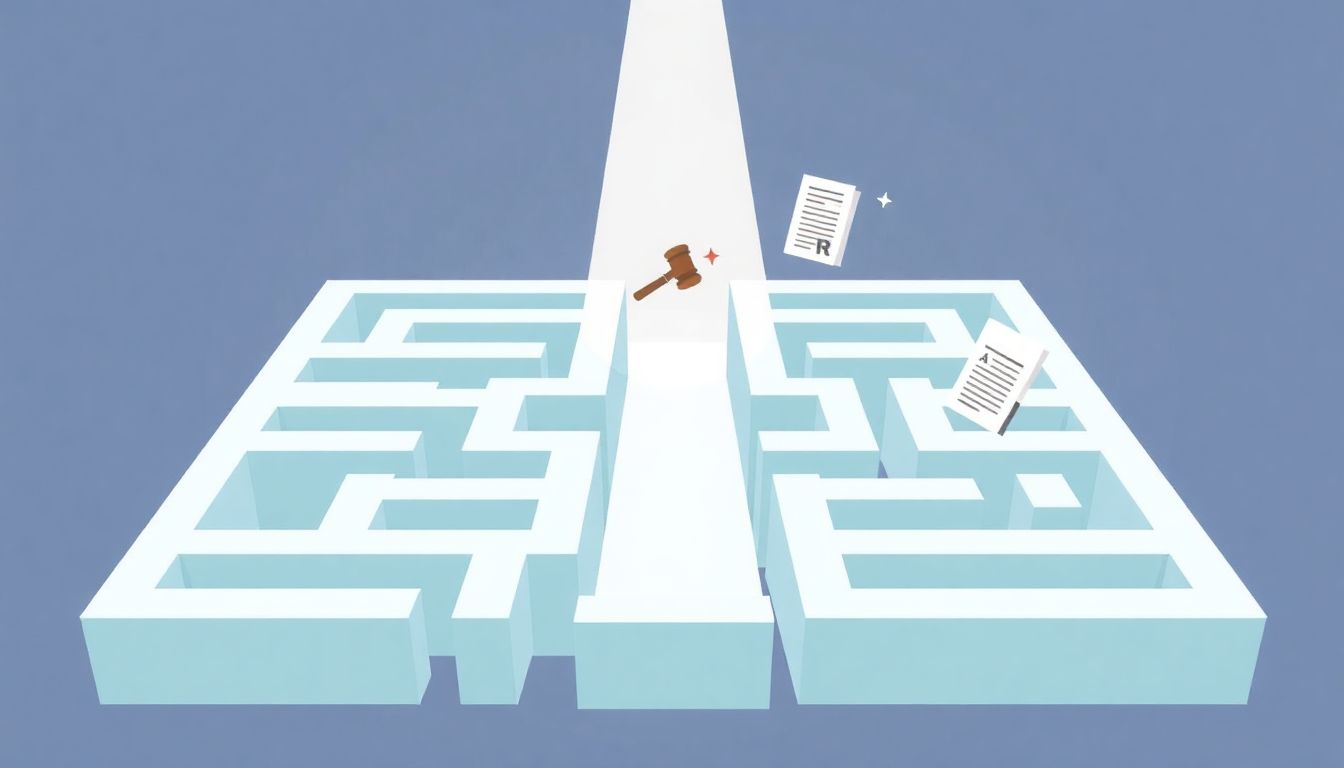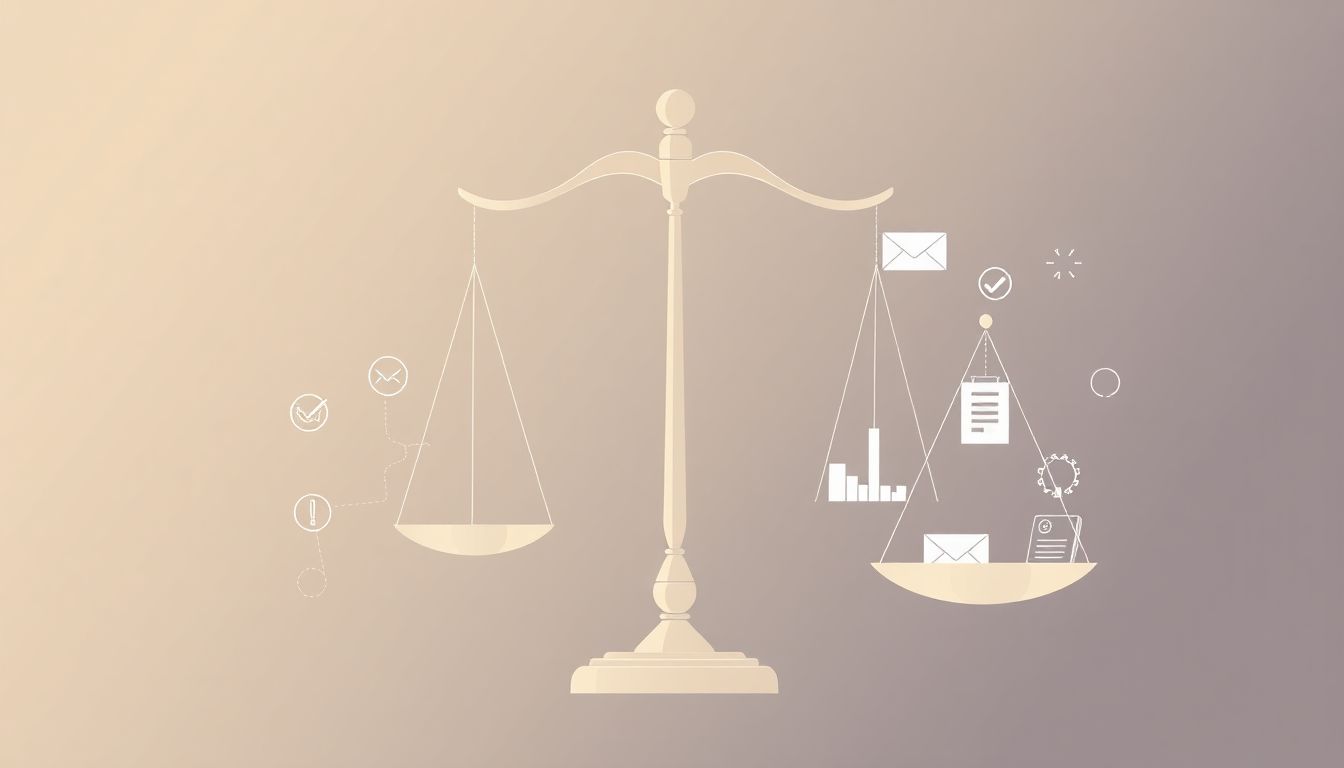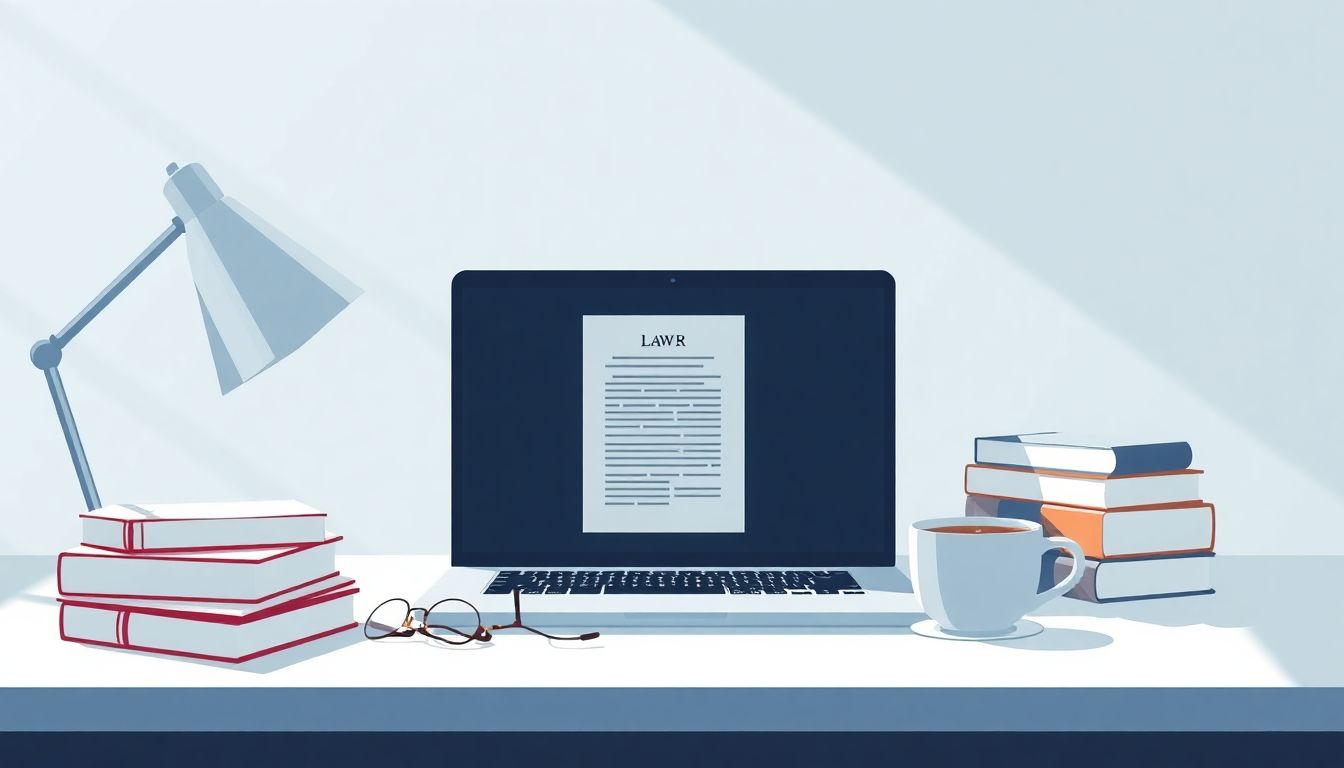Navigating the world of civil litigation can feel like trying to decipher a foreign language. You’re not alone if you find yourself overwhelmed by legal jargon, daunting documents, and endless case strategies. It’s totally normal to feel a bit lost in the maze of it all.
But what if I told you there’s a way to simplify the chaos? By utilizing tailored ChatGPT prompts, you can streamline your legal research, draft documents, and even prepare for trials with greater confidence. Stick around, and I’ll show you how to turn that daunting process into a more manageable and even enjoyable task.
From effective prompts for document drafting to strategies for negotiation, we’ll cover everything you need to know about using ChatGPT in civil litigation. Let’s get started on making your legal journey a little easier!
Key Takeaways
- Utilize specific ChatGPT prompts to simplify legal research and document drafting in civil litigation.
- Start with targeted queries to quickly find case law and summarize complex documents.
- Leverage ChatGPT for drafting templates and essential components of legal documents.
- Prepare for trials by using prompts to outline strategies and simulate courtroom scenarios.
- Enhance case analysis with prompts that assess strengths, risks, and relevant precedents.
- Improve client communication with drafts for updates and scripts for sensitive discussions.
- Utilize negotiation prompts to identify leverage points, counteroffers, and strategies for challenging interactions.

Top ChatGPT Prompts for Civil Litigation
Looking for effective ways to use ChatGPT in civil litigation? Here are some top prompts that can help streamline your legal research and documentation tasks.
1. “Generate a list of potential legal defenses for a breach of contract case.”
2. “Summarize the key elements required to establish negligence in tort law.”
3. “Provide a step-by-step guide for preparing a motion to dismiss.”
4. “Create an overview of relevant case law regarding property disputes under [specific jurisdiction].”
5. “Draft a checklist for conducting depositions in civil litigation.”
These prompts enhance the capacity for legal technology to support attorneys and improve their efficiency in litigation tasks.
How to Use ChatGPT for Legal Research in Civil Litigation
Legal research can be time-consuming, but leveraging ChatGPT makes it much more efficient.
First, start with specific queries that direct ChatGPT to your area of interest.
For example, you can ask: “List the top recent rulings on personal injury claims in California.”
This helps you pinpoint relevant case law quickly.
Next, use prompts that allow ChatGPT to summarize complex legal documents. Try: “Summarize the main findings in the case of Smith v. Jones.”
Additionally, for deeper insights, engage ChatGPT by asking, “Explain the implications of the recent [specific case] ruling on contract law.”
Incorporating these tactics can save you time and improve your overall legal research effectiveness.
Effective ChatGPT Prompts for Drafting Civil Litigation Documents
Drafting legal documents can be tedious, but ChatGPT can help lighten the load.
Start with simple prompts, such as: “Create a template for a civil complaint in a personal injury case.”
For specific sections, try: “Draft a compelling introduction for a motion for summary judgment.”
If you’re stuck, you can also ask: “What elements should I include in a demand letter for a settlement?”
Using prompts for structured tasks, such as “List the necessary components of a discovery request,” can help ensure you don’t miss essential details.
Finally, always review the outputs to ensure they meet your jurisdiction’s specific requirements.
Using ChatGPT to Prepare for Civil Litigation Trials
Preparing for trial can feel overwhelming, but ChatGPT offers valuable support.
Begin with prompts that help outline your strategy: “What are the critical points to include in an opening statement?
You can also prompt ChatGPT for courtroom prep tips: “List strategies for effectively presenting evidence during trial.”
Role-playing scenarios can enhance your rehearsal, so you might say: “Simulate a witness examination for my upcoming personal injury trial.”
This allows you to practice and adjust your questions based on real-time feedback from ChatGPT.
Lastly, after gathering insights, finalize your strategy with: “Summarize the most critical questions to ask during cross-examination.”

ChatGPT Prompts for Case Analysis in Civil Litigation
When evaluating cases in civil litigation, ChatGPT can streamline your analysis process.
Start with: “Outline the strengths and weaknesses of my client’s case based on the facts provided.”
This helps you identify key points that merit further exploration.
Next, use: “Create a risk assessment based on the potential outcomes of this case.”
This allows you to prepare your client for various scenarios.
Another prompt might be: “What are the common arguments made in similar cases in this jurisdiction?”
This provides context and may highlight strategies you hadn’t considered.
Finally, ask: “Summarize the potential legal precedents applicable to this case.”
Understanding these can inform your legal strategy and enhance your overall assessment.
Improving Communication with ChatGPT in Civil Litigation Scenarios
Effective communication is critical in civil litigation, and ChatGPT can assist in honing your message.
Begin with prompts like: “Draft a client update email regarding the status of their case.”
This helps ensure your clients feel informed and secure.
For difficult conversations, use: “Create a script for discussing potential settlement offers with a client.”
This prepares you to address sensitive topics and set the right tone.
Another useful prompt is: “Generate a list of questions to ask during an initial consultation with a new client.”
This ensures you gather all necessary information upfront.
Finally, don’t overlook feedback; try: “Compose a follow-up email requesting client feedback after the consultation.”
This fosters open lines of communication, ensuring your clients feel valued and heard.
ChatGPT Prompts for Negotiation Strategies in Civil Litigation
Negotiation is an art, and with ChatGPT, you can enhance your strategy significantly.
Start with prompts like: “Identify potential negotiating points in our case against [opposing party].”
This gives you a clear list of leverage points for discussions.
You can also use: “Draft a counteroffer for a settlement proposal from the opposing counsel.”
This ensures you respond appropriately without losing ground.
Another valuable prompt is: “Suggest tactics for dealing with a non-cooperative opposing counsel.”
This prepares you for challenges that may arise during negotiations.
Lastly, always plan ahead: “Create a checklist of items to bring to the negotiation meeting.”
This step ensures you’re organized and ready to present your case effectively.

Frequently Asked Questions About ChatGPT Prompts for Civil Litigation
If you have questions about using ChatGPT in civil litigation, you’re not alone. Many legal professionals are curious about how this technology can assist them. Here are some of the most common questions.
1. **Can ChatGPT replace a lawyer in civil litigation?** No, ChatGPT is a tool that can assist lawyers by providing research, drafting, and case analysis support, but it cannot replace the expertise and judgment of a qualified attorney.
2. **How can I ensure the accuracy of ChatGPT’s outputs?** Always review and verify the output from ChatGPT against established legal principles and jurisdiction-specific requirements. It’s not infallible and should not be used as the sole basis for legal decisions.
3. **What types of documents can ChatGPT help me draft?** ChatGPT can assist in drafting various legal documents such as complaints, motions, demand letters, and discovery requests. Just provide clear instructions about the type of document you need.
4. **Is using ChatGPT ethical in legal practice?** Using ChatGPT can be ethical as long as attorneys maintain a duty of care to their clients by reviewing and ensuring that the AI-generated information is accurate and relevant. Keep in mind the rules of evidence and professional conduct in your jurisdiction.
5. **How much time can I save by using ChatGPT for my legal tasks?** While the exact time savings will vary depending on the task, many users report a significant reduction in the time spent on research and drafting. This allows attorneys to focus more on strategic aspects of their cases.
By considering these FAQs, legal professionals can gain a clearer understanding of how to effectively integrate ChatGPT into their civil litigation practices.
FAQs
Effective prompts include specific requests for templates, outlines, or legal language tailored to your case type. Consider specifying the jurisdiction and document type for more accurate results.
ChatGPT can summarize case law, identify relevant statutes, and generate insightful questions. By providing clear prompts, you can receive concise and relevant legal information to aid your research.
Utilize ChatGPT for creating trial outlines, preparing witness questions, and framing opening and closing statements. Be specific about the case details to enhance the relevance of the output.
ChatGPT can offer insights on negotiation tactics, strategies for argument formulation, and responses to anticipated counterarguments. Clear context enhances the effectiveness of its suggestions.
